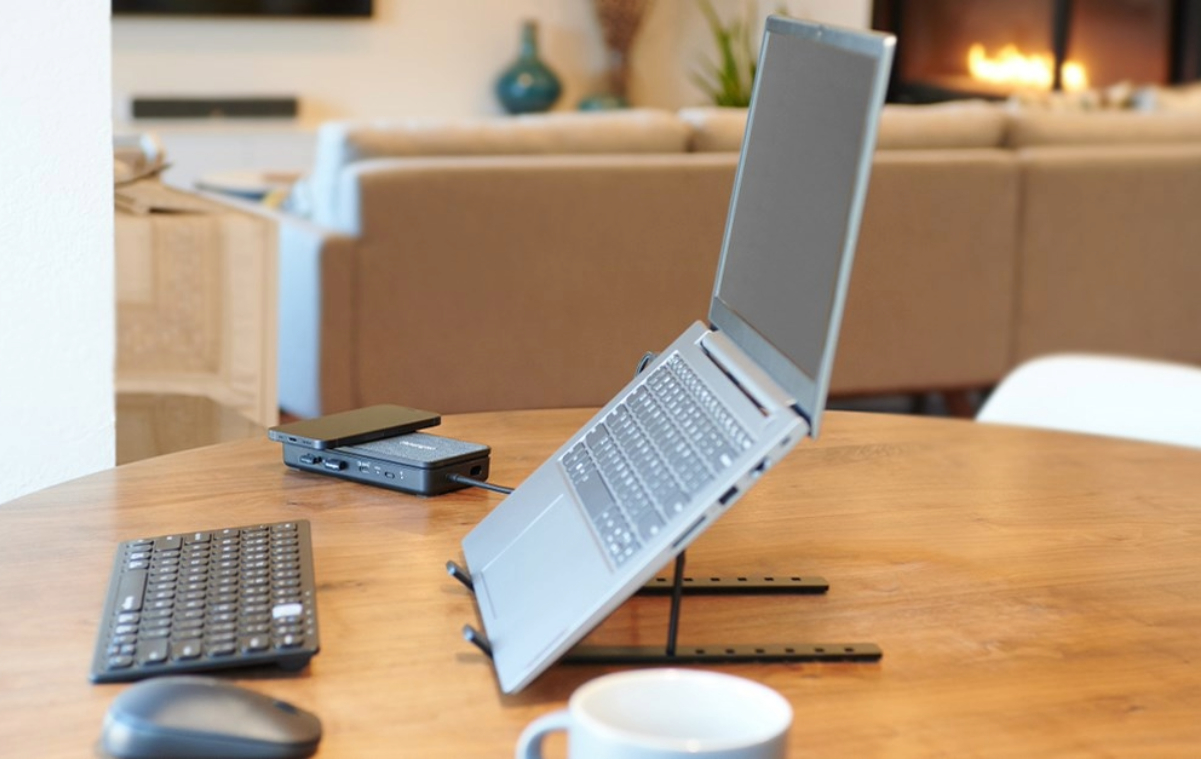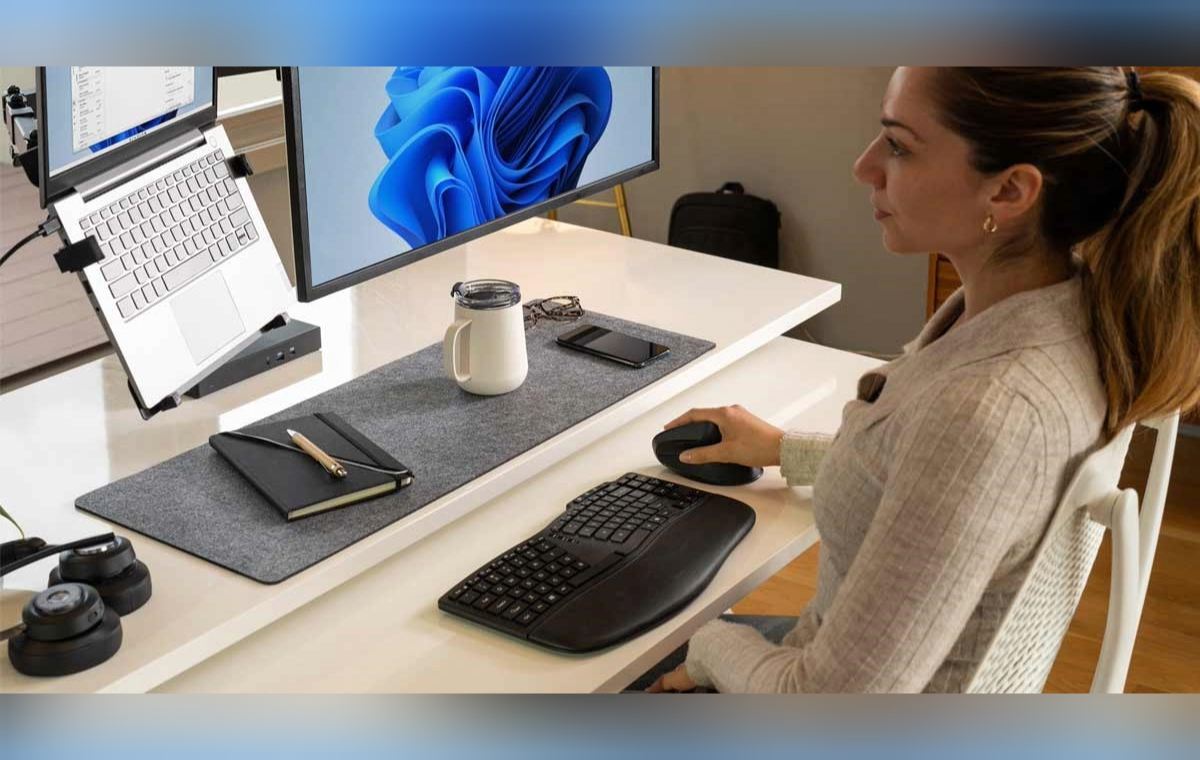Ready to explore laptop risers and their importance in creating an ergonomic and efficient workstation? Laptop risers are innovative accessories designed to elevate your laptop, bringing your screen to a more comfortable eye level and improving your overall posture while working. They play a vital role in mitigating musculoskeletal strain caused by prolonged laptop use. In this article, we review the significance of laptop risers, the numerous benefits they provide, and the different types available. We also discuss the essential features to look for when choosing a laptop riser and provide practical tips on how to effectively use laptop risers to optimize your productivity and well-being. Read on to learn how laptop risers can revolutionize your workstation and enhance your work experience.
Benefits of Using a Laptop Riser or Laptop Stand
Using a laptop riser offers a multitude of benefits that contribute to a more comfortable and productive work experience. One of the primary advantages lies in its ergonomic benefits. Unlike working directly off a laptop keyboard without external devices, a laptop riser allows you to elevate your laptop to an optimal eye level, promoting better posture and reducing strain on your neck, shoulders, and back. By aligning your screen with your eye level, you can maintain a more neutral and comfortable position while working, mitigating the risk of musculoskeletal discomfort.
Additionally, a laptop riser provides cooling benefits by improving ventilation. Laptops tend to generate heat, and when placed on a flat surface, it can hinder airflow, leading to potential overheating issues. With a laptop riser, air circulation is enhanced, allowing for better cooling, and preventing the risk of thermal damage to the device. This feature is particularly beneficial for individuals who engage in resource-intensive tasks or use their laptops for extended periods.
Moreover, a laptop riser offers convenience benefits. By elevating the laptop, it creates more desk space, allowing you to have a clutter-free and organized workspace. This additional space can accommodate external peripherals such as a separate keyboard and mouse, providing a more comfortable and ergonomic setup. Using external devices can contribute to better typing ergonomics and reduce the strain on your wrists and hands, enhancing overall productivity and reducing the risk of repetitive strain injuries.
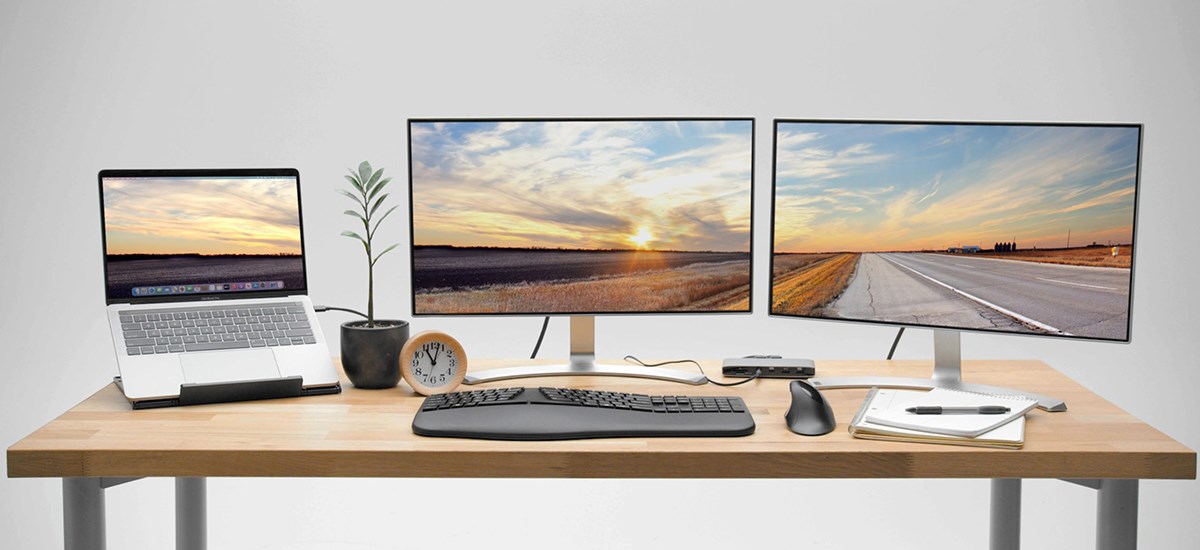
Types of Laptop Risers
Laptop risers come in various styles, each with its own set of advantages and considerations. Fixed-height risers are designed with a predetermined height and cannot be adjusted. While they offer a straightforward solution for elevating your laptop, their lack of adjustability limits customization options based on individual preferences and ergonomic needs. This is why adjustable-height risers are a preferred choice for many. These risers allow you to customize the height according to your comfort level, promoting optimal posture and reducing strain. With adjustable-height risers, you have the flexibility to adapt the setup based on your sitting or standing position, ensuring a more versatile and ergonomic workspace.
In addition to fixed-height and adjustable-height risers, there are portable laptop risers. These compact and lightweight options are designed for on-the-go professionals who require mobility and flexibility. Portable risers are often foldable or collapsible, making them easy to carry in a bag or briefcase. They provide the convenience of transforming any surface into a workstation wherever you go. However, due to their portability, they may have limitations in terms of stability and adjustability compared to other types of risers.
While fixed-height risers offer simplicity and adjustable-height risers provide customization, portable risers cater to mobility needs. Consider your specific requirements, such as whether you need a fixed setup at a dedicated workspace or if you frequently work in different locations. Evaluating the pros and cons of each type will help you determine the most suitable laptop riser for your work style and preferences.
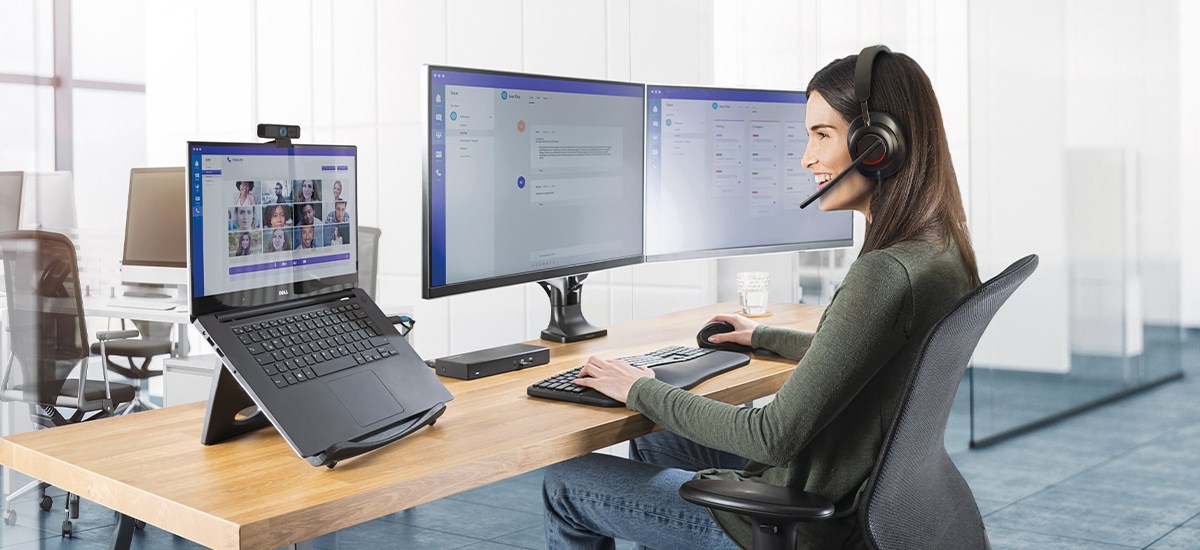
Features to Look For in a Laptop Riser
When selecting a laptop riser, there are several key features to consider that can enhance your overall experience and usability. One essential feature is height adjustability, as it allows you to customize the height to your specific needs and achieve optimal ergonomic alignment. Look for a laptop riser that offers multiple height settings, preferably with a smooth and easy-to-use adjustment mechanism. It is recommended to choose a height that aligns your laptop screen with your eye level, promoting a comfortable viewing position. Kensington’s line of Easy Riser™ Go Adjustable Ergonomic Laptop Risers simplify ideal ergonomic height positioning using scientifically proven research to support proper fit and individualized comfort.
Another important feature to consider is the cooling design of the laptop riser. Look for models that incorporate effective ventilation mechanisms to enhance airflow around the laptop. Adequate cooling is crucial for maintaining optimal performance and preventing overheating, especially during intensive tasks. Opt for a design that promotes efficient heat dissipation and helps keep your laptop running at its best. All of Kensington’s laptop risers are designed with heat dissipation in mind.
For those seeking portability, look for features that facilitate easy transportation and setup. Portable laptop risers should be lightweight and compact, ideally with a collapsible or foldable design. This allows you to easily carry and store the riser when on the go. Ensure that the portable riser is sturdy enough to support your laptop securely, even in different working environments.
Additionally, consider other features that can enhance your overall experience. Cable management options, such as built-in cable clips or routing channels, help keep your workspace organized and prevent tangling. A non-slip base is essential to ensure stability and prevent the laptop riser from shifting or sliding during use. Some risers also come with additional features like built-in USB hubs or document holders, offering added functionality. The Kensington SmartView™ Organizing Laptop Riser has garnered an innovation award for its all-in-one approach.
By considering these features, you can choose a laptop riser that aligns with your specific requirements and preferences. Whether you prioritize height adjustability, cooling design, portability, or other features, selecting the right laptop riser can significantly enhance your comfort, productivity, and overall satisfaction with your workstation setup.
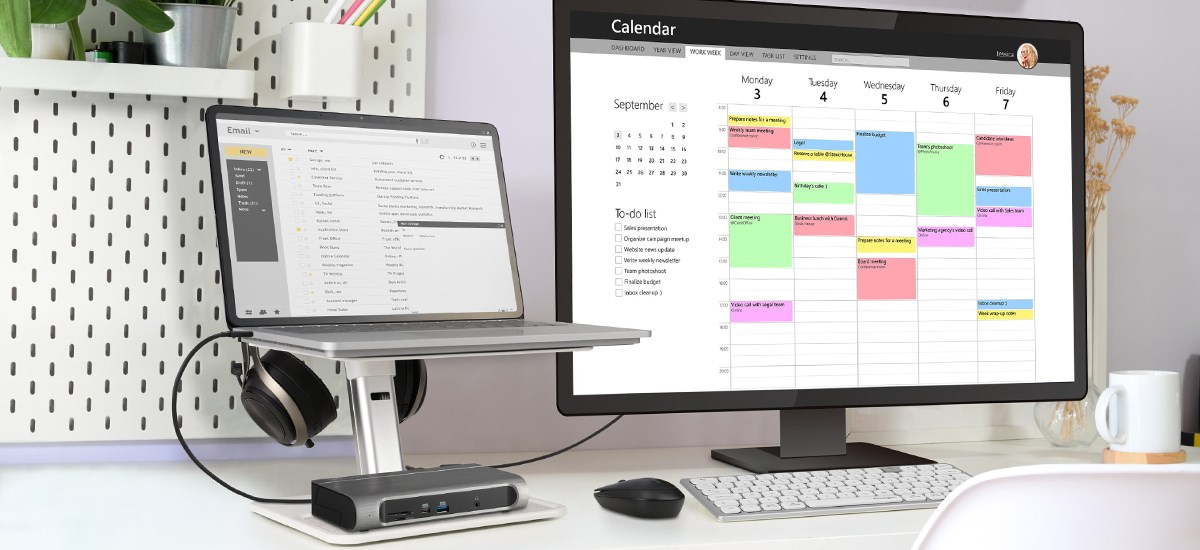
How to Use a Laptop Riser
To make the most of your laptop riser and optimize ergonomics, it is important to follow a few key tips. First and foremost, set up your laptop riser to align the laptop screen with your eye level. This helps maintain a neutral posture and minimizes strain on your neck and spine. Additionally, it is highly recommended to always pair your laptop riser with an external keyboard and mouse. This allows you to position your hands and arms in a comfortable and natural position, reducing the risk of wrist and shoulder discomfort.
To further improve ergonomics, ensure that the laptop is positioned at a slight angle on the riser. This helps promote a more comfortable typing position by reducing wrist extension. It is important to note that once the laptop is elevated, relying solely on the laptop’s keyboard and trackpad may compromise ergonomics and lead to discomfort. Utilize the external keyboard and mouse to maintain a neutral posture while working.
Regular breaks are also crucial for preventing discomfort. Take short breaks to stretch, relax your muscles, and reduce eye strain. Remember to adjust the height and angle of the laptop riser as needed to accommodate changes in your sitting or standing position throughout the day. Listening to your body and making necessary adjustments will help ensure a comfortable and productive working experience.
By implementing these best practices, you can make the most of your laptop riser and create an ergonomic workstation that minimizes discomfort, promotes good posture, and enhances your overall well-being during extended laptop use.



